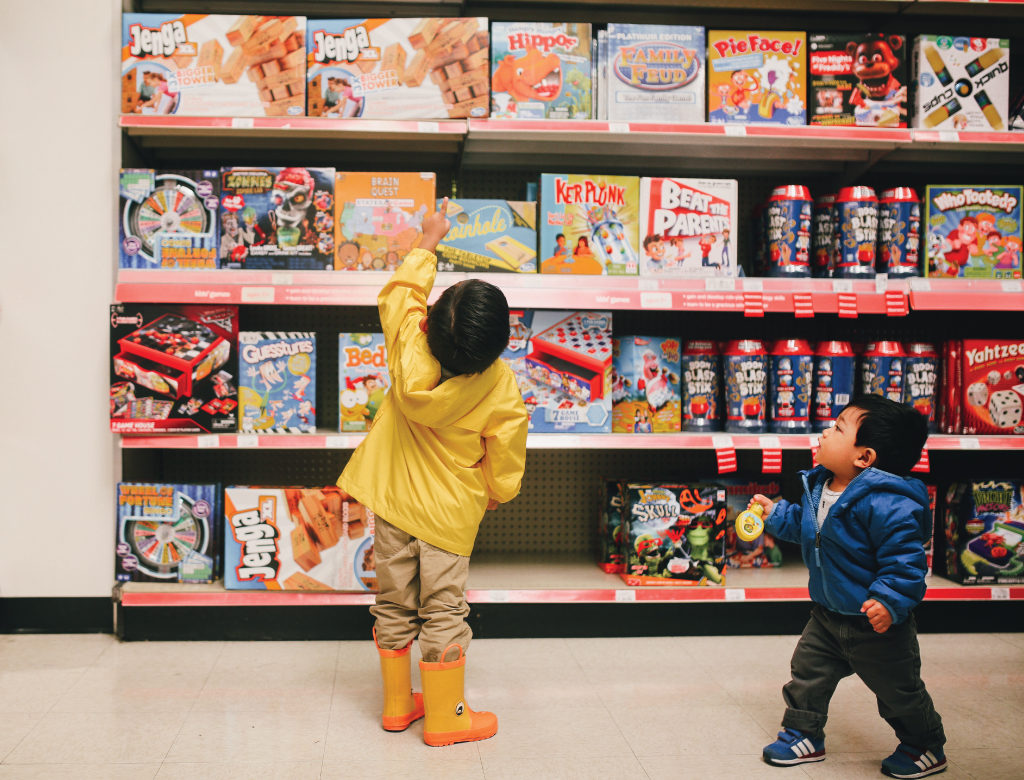The White House will delay the additionally planned 10% tariffs—which includes toy tariffs—until December 15.
Just two weeks ago, President Trump threatened plans to move forward with the 10% tariff on the remaining $300 billion of goods imported from China, beginning September 1.
When asked by reporters what led to the delay, President Trump pointed to recent productive talks with China and the potential impact these tariffs would have on consumers. “We’re doing this for Christmas season, just in case some of the tariffs would have an impact on U.S. customers,” said Trump. “We’ve delayed it so that they won’t be relevant for the Christmas shopping season.”
“A delay in tariffs to December 15 has saved the holiday season for many in the U.S. toy and play community,” said Steve Pasierb, president and CEO of The Toy Association. “We appreciate leaders in the administration listening and we hope through the tariff exclusion process the administration will provide further relief to the toy industry by eliminating all toys and toy-related components from these latest tariff lists. While we continue to support the goal of restructuring the U.S.-China trade relationship, tariffs are the wrong approach.”
The Office of the U.S. Trade Representative also released a list of products that would be included in the delayed tariff implementation date, including baby gear (strollers and high chairs), video games, some electronics, and many toys. The tariffs will move forward for other items on September 1, including food products and certain apparel, according to the USTR. Following the news, stocks soared on Tuesday with the Dow up nearly 450 points by mid-day.
The National Retail Federation also issued the following statement in response to the delay. “While we are still reviewing the details, we are pleased the administration is delaying some tariffs ahead of the holiday season and acknowledging the impact on American consumers,” said Senior Vice-President for Government Relations David French. “Still, uncertainty for U.S. businesses continues, and tariffs taking effect September 1 will result in higher costs for American families and slow the U.S. economy. During this delay period, we urge the administration to develop an effective strategy to address China’s unfair trade practices by working with our allies instead of using unilateral tariffs that cost American jobs and hurt consumers.”
Pasierb tweeted earlier in response:
Delay in #tariffs to Dec 15 has saved the holiday season for the US #toy and #play community. We appreciate leaders in the Administration listening and continue to support the goal of restructuring the U.S.-China trade relationship while believing tariffs are the wrong approach.
— Steve Pasierb (@StevePasierb) August 13, 2019
The Toy Association, which has been aggressively advocating against toy tariffs for more than a year and is an active member and leader of the Americans for Free Trade coalition, continues to keep its members abreast on toy tariffs and spreading awareness about the negative impact of these tariffs on American companies, jobs, and families.
“With the majority of American toy companies defined as small businesses, any tax on children’s toys will deal a devastating blow to a significant number of smaller employers as well as impact both the retail community and families,” Pasierb said. “We will continue to advocate with the administration for solutions that can address the very real trade, intellectual property and business issues our nation has with China while not placing the burden upon America’s toymakers, retailers and children. Toys are a source of childhood joy and a myriad of developmental benefits, not a tool in a trade war.”

